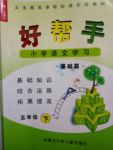题目内容
—You really _________ your father!
—Yes, but I think I am more outgoing than him!
A. look after B. feel like C. take after D. care for
练习册系列答案
 一线名师口算应用题天天练一本全系列答案
一线名师口算应用题天天练一本全系列答案 小学学习好帮手系列答案
小学学习好帮手系列答案
相关题目
题目内容
—You really _________ your father!
—Yes, but I think I am more outgoing than him!
A. look after B. feel like C. take after D. care for
 一线名师口算应用题天天练一本全系列答案
一线名师口算应用题天天练一本全系列答案 小学学习好帮手系列答案
小学学习好帮手系列答案